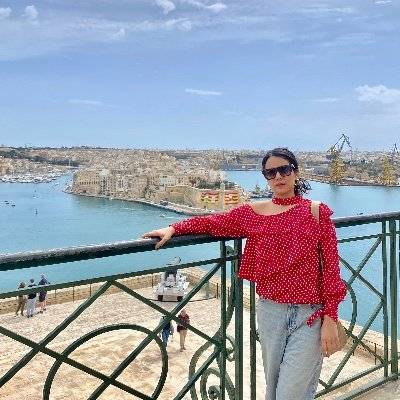When Hamas massacred 1,200 Israelis on 7 October in the biggest attack on the Jewish community since the Holocaust, Germany showed unflinching solidarity with the State of Israel, supporting its “inalienable” right to self-defence. It rightly condemned the loss of lives and capture of hostages while calling for the latter’s immediate safe return. Berlin’s Brandenburg Gate was illuminated in the colours of the Israeli flag and a rally was organised the next day in the capital, attended by several government officials, in solidarity with the Jewish state to unequivocally condemn anti-Semitism. German Chancellor Olaf Scholz said his country’s “only place” is at Israel’s side, referring to the special relationship between the two countries due to Germany’s past — a stance he reiterated during his trip to Tel Aviv and on a number of occasions, even after over 21,000 Palestinians, among them more than 8,000 children, have been killed. With the temporary truce ending, the death toll in Gaza has increased by 40 per cent compared with before the humanitarian pause, according to Geneva-based non-profit organisation Euro-Mediterranean Human Rights Monitor.
The steadfast support for Israel in Germany also resulted in authorities imposing a crackdown on peaceful Palestinian voices in several German cities from the beginning of the latest spike in this conflict. Police officers made several arrests — including the detention of Jewish allies of Palestine — imposed a ban on demonstrations, cancelled artists and seized banners, almost mirroring any authoritarian state. Protesters speaking up against the Israeli occupation, civilian deaths following the siege and the abysmal humanitarian conditions in Gaza were seen as pro-terror and pro-Hamas sympathisers. With the exception of Samidoun, which celebrated the attacks on 7 October and was rightfully banned by the German government, most Palestinian activism in Germany, comprising leftists, queers, feminists and Jews, has been largely peaceful.
Where the intimidation from the state and particularly the German police did not deter pro-Palestine rallies in support of a ceasefire — demonstrations take place every week with hundreds and thousands in attendance — it did not take long for the anti-Palestinian sentiments in Germany to take an anti-migrant, anti-Arab and anti-Muslim stride at a time when Islamophobia in the European country was already surging. A study in June by the Expert Group on Anti-Muslim Sentiment in Germany revealed that hostile attitudes towards Muslims could be found in large parts of the German population, with Muslims seen as “others” and associated with “violence and terror”.
The Hamas-Israel war greatly exposed cracks in Germany’s social and democratic fabric, where racism is still rampant and anti-Muslim stereotypes are widespread. The German press, including publications like Bild and Die Zeit, played an underwhelming role by peddling harmful stereotypes about Germany’s Muslims, terming them as a threat to the country’s democracy and values and linking them with hate and anti-Semitism. A Die Zeit published piece even questioned if Muslim immigrants could ever become “civilised”, while leaders, including Scholz, called for their deportation as, according to him, “too many are coming.”
Other German leaders, like the head of the Christian Democratic Union, Friedrich Merz, gave similar remarks: “Germany cannot take in any more refugees. We have enough antisemitic young men in the country”, as if anti-Semitism was imported and not a problem Germany faces from the far right and white supremacists within. Around 84 per cent of anti-Semitic crimes, according to the federal police, are committed by the German far right. The Alternative for Germany (AfD) party, a far-right political force, regularly carries out hateful, racist and anti-Semitic parades unchecked and is enjoying a spike in its support locally, becoming the second-largest party after the recent state elections. The German police and politicians are sceptical of the pro-Palestine marches, which they claim is out of fear of anti-Semitic statements. But it is pertinent to mention here that this legitimate concern about anti-Semitism is majorly only expressed when pro-Palestine protests or gatherings of Arab immigrants and brown Muslims are in question and not when the threat comes from the local supremacist perpetrators. Worryingly, anti-Semitic incidents have seen a spike with the ongoing war in Gaza. Yet, it is unsettling to see Germany weaponising this grave issue by blaming it on migrants and Arab Muslims and fanning the flames of racism and xenophobia.
A Muslim resident of Berlin, disappointed with the cold shoulder Muslims receive in Germany in times like the Israel-Palestine conflict, shared with me that it is scary to think what the coming times hold for her family and her children who are of Arab ethnicity and have Muslim names. Another immigrant of a Muslim background echoed similar sentiments, citing that the hatred and perpetuation of stereotypes on social media and the German media make her feel increasingly unwelcome.
Once appreciated for its open acceptance of refugees and tolerance, many are coming to a disconcerting realisation that Germany may not have completely healed from the past and has much to do to combat Islamophobia, anti-Semitism and racism. By stereotyping immigrants, Palestinians and Arabs, Germany is further emboldening the likes of AfD and the far right. Its media giants are doing a disservice by creating divisions and peddling stereotypes and its politicians have failed to stand for the 5.5 million Muslims.
READ: Hamas says Israel shows no concern for lives of its prisoners in Gaza
The views expressed in this article belong to the author and do not necessarily reflect the editorial policy of Middle East Monitor.

![In solidarity with Palestinians, people holding Palestinian flags and banners gather at Oranienburg Square to march Schlesisches Tor and Puschkinallee as part of a pro-Palestinian demonstration in Berlin, Germany on December 02, 2023 [Halil Sağırkaya - Anadolu Agency]](https://i0.wp.com/www.middleeastmonitor.com/wp-content/uploads/2023/12/AA-20231202-33087392-33087378-PROPALESTINIAN_DEMONSTRATION_IN_BERLIN.jpg?fit=920%2C613&ssl=1)







